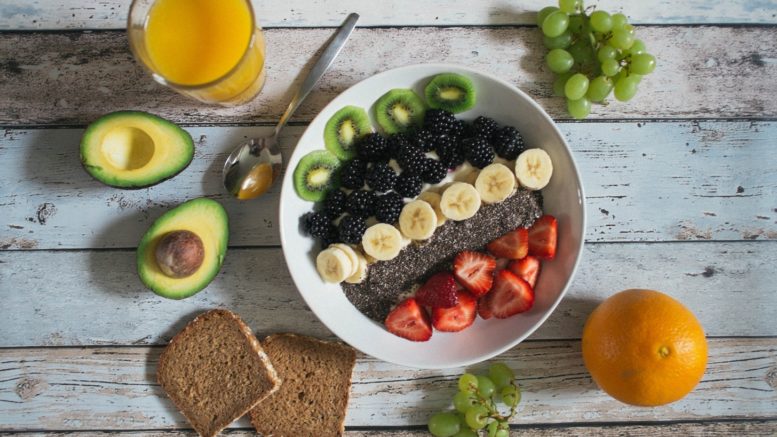With so much knowledge at our fingertips, it’s no wonder people are rapidly turning to creative and alternative dietary options in order to boost their health and wellbeing, but also to make a difference for the world. On one hand, going vegan is good for the planet, but it can be a leap for people to lead healthier lives, reduce the instances of chronic illness, and contribute to improved animal welfare.
The most common question among aspiring vegans relates to the consumption of protein, the key macronutrient aside from carbs and fats, responsible for a myriad of metabolic processes in our bodies, including muscle-building. That’s why vegan fitness enthusiasts pay even more attention to the issue, as protein is vital for helping you achieve your health and fitness goals. Let’s cover some of the main ways vegans can ensure optimal protein consumption every day.
Delicious nuts and seeds
Both as a healthy vegan snack and a meal on their own, nuts and seeds can help you simplify your daily vegan menu from day one. If you enjoy the flavor, you can rely on snacking almonds, which can contain around 20g of protein per 100g cup, while you can create your own satiating trail mix with almonds, pistachios, walnuts, and pumpkin seeds, chia seeds, etc.
Cashews are a great vegan source of protein, they are delicious, and you can add them to your salads as well as your daily snack list. To keep your palate interested, you can use nut butters in your morning oatmeal, or as a spread for your toast. These nut butters can also work wonderfully well with fresh veggies as a healthy snack.
Versatile beans and legumes
For your main courses of the day, you’ll find that beans of many sorts can be your best dietary base for protein-rich meals. Beans are filling and loaded in fiber, which means you’ll feel satiated for hours on end and you’ll curb cravings. Some sorts such as borlotti beans have an exceptionally high protein content, as much as 23g per 100g of beans.
Also known as cranberry beans, these nutty-flavored beans are a brilliant addition to your vegan diet for their high content of B vitamins. Add to that, you can diversify with pinto beans, chickpeas, black beans, and peanuts (yup, they are a legume!), which are all brimming with protein, numerous minerals, as well as gut-friendly fiber.
Meat substitutes like seitan
This delicious slice of vegan goodness is made of pure wheat-derived gluten, and thanks to its texture and taste, it resembles actual meat when prepared properly. Add to that, it packs quite a protein punch, with about 25g of protein per 100g serving. Rich in other healthy ingredients like selenium, calcium, and phosphorus, seitan is a great addition to your vegan menu.
A word of caution to those with Celiac disease or gluten sensitivity: you should avoid consuming seitan in case you have these digestive issues, and turn to other alternatives that can help you consume enough protein every day.
Soy-based products like tempeh
Soybeans are a favorite pick for many vegans, and there are so many delicious and versatile ways you can rely on soy in your diet. Tempeh is one of many soy-based products that has a high protein content, much like seitan and tofu.
Since tempeh is made of cooked and fermented soybeans, it’s also high in fiber, probiotics that are good for your digestive tract, and a slew of vitamins and minerals like calcium and iron. A single 100g serving can boast around 19g of protein, and since soybeans are a whole source of protein, you’ll get your fair share of those essential amino acids, too.
Protein-packed supplements and powders
So far, you’ve learned that there are nine essential amino acids the body cannot synthesize on its own, which is why we need to get them from food. While meat and dairy are by far the most superior sources of these nine essential amino acids, there are plant-based sources you can rely on. If, however, your body cannot use them in the right quantity due to their bioavailability directly from plants, many vegans use protein powder as a healthy substitute.
Especially if you lead an active fitness life and you want to build lean muscle, protein powder supplements are a great way to ensure you have a wholesome nutrition. You can find vegan protein powders that have a balanced concentration of these amino acids and complement your diet with a tasty protein shake.
Ideally, no matter if you’re an athlete or not, you should start checking your health and nutrition on a regular basis with the right blood work the moment you start switching to eating vegan. That is the only effective way to notice deficiencies in essential amino acids and adapt your eating habits to make sure that your health doesn’t suffer. As important as protein intake is, it’s even more essential to remember that the quality and type of protein matters as much as its quantity – so make sure you’re on the healthy side of eating vegan at all times.
